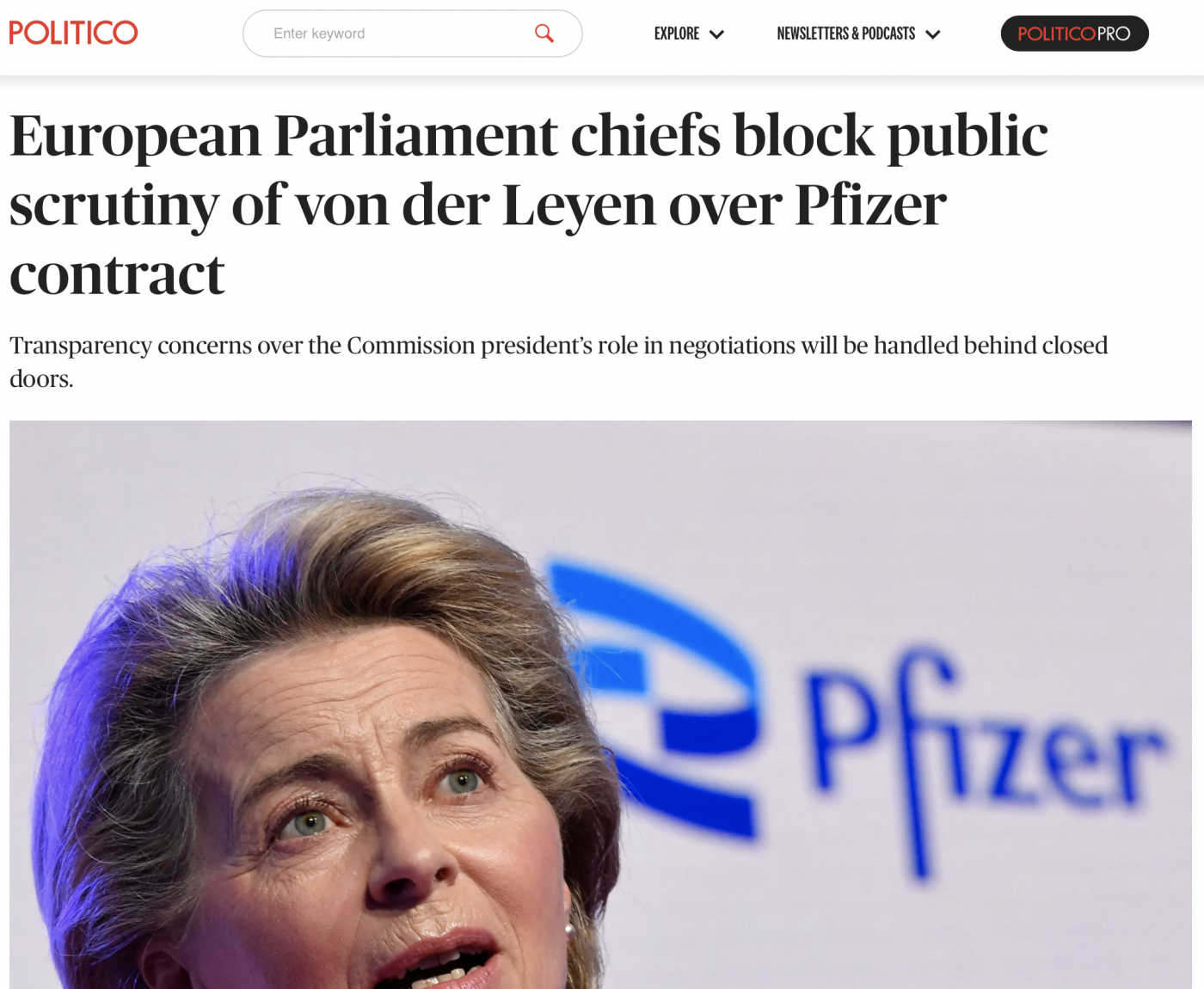Time for the watchdog to wake up
Politico reported that the European Parliament's Conference of Presidents shielded Commission president von der Leyen from scrutiny of her text message exchanges with Pfizer CEO Bourla. Cozy behind-doors meetings are no substitute for real parliamentary oversight. The fact that the EP's leadership chose to do so, is emblematic of the Parliaments current -failure to be the democratic watchdog it must be.
--
The EU Treaties are crystal clear about the role of the European Parliament. Parliament has two tasks: one is being a a legislator, the other being a democratic watchdog. The European Parliament must "exercise functions of political control". That applies particularly to the Commission, as the Treaty also states that "The Commission, as a body, shall be responsible to the European Parliament''.
Two equally important tasks, with wildly differing executions. The current Parliament is doing an excellent job as a legislator, but it is fast asleep as a watchdog. Last week we learned from a Politico article that the Parliament's political leadership, the so-called Conference of Presidents, had decided to have a behind closed doors hearing of President Von der Leyen on the matter of her text messages with the CEO of Pfizer during the negotiations on a billion euro vaccine purchase.

The Conference of Presidents should provide leadership and ensure that Parliament carries out both its duties. It should not be a cozy safe space in which the separation of powers disappears. This is what is at stake, and Politico is right in characterizing these in camera meetings as a blockage of scrutiny. Closed-door sessions do not remotely qualify as real accountability or democratic scrutiny.
Besides a misguided erosion of the European Parliaments duties and powers, the course set by the Conference of Presidents is entirely the wrong signal at a time when Parliament is scrambling to improve transparency. Other EU entities are acting much more forcefully. The EU Ombudsman has investigated the case and ruled that the case constitutes ‘maladministration’. The European Court of Auditors, in its report on Covid vaccine procurement, indicates it has asked for information from the Commission, but it has not received a reply.
These are examples of EU bodies putting in more work than the EP’s leadership. It is getting outright embarrassing if the Americans turn out to be a more forceful scrutinising force than the European Parliament. Recently the New York Times decided to take the Commission to court . Given that the European Court of Justice strictly applies the law, without political considerations, it is highly likely it will rule in line with the conclusions of the Ombudsman. Just as a reminder: all of this is known to the Conference of Presidents. They act in full knowledge of the facts, but chose to be in denial.
Regardless of nationalitiy, the real embarrassment is that it will take litigation to achieve something that Parliament should be demanding per its Treaty obligations. Transparency and accountability are not a matter to be left for litigation by individual citizens or written questions by a handful of MEPs. It is an institutional responsibility - one that is being neglected. As we can see from this latest episode, wilfully neglected.
When Parliament got directly elected for the first time in 1979, it was a very significant moment for European democracy. Elections are a hallmark of democracy, to be conducted honestly and fairly. The real essence of democracy, however, is checks and balances. When either one of these ingredients disappears, the fabric of our European democracy will unravel very quickly. That is all the more important at a time when the Union is rapidly evolving and acquiring new powers. More power for the Commission, means more responsibility.
The purchase of vaccines, the introduction of eurobonds or the coordinated provision of military equipment to Ukraine are all very welcome new steps taken at a European level. But each new power must be accompanied by a corresponding democratic check. A powerful geopolitical Europe must simultaneously become a powerful European democracy. The refusal of the Commission to be held to account amounts to contempt of Parliament (a much more serious form of contempt than a stupid off-mike slur by a populist Commissioner, frankly).
The European Parliament is making a grave mistake by taking the European Commission's avoidance of accountability lying down, indeed even facilitating it. And not just in this particular instance. They are signs of a dangerous weakening of EU democracy, as the separation of powers, checks and balances, accountability and transparency are being hollowed out rapidly. The fightback should have started yesterday, but for now the Conference of Presidents has to reverse its decision and hold a scrutiny debate on sms-gate at the next plenary sitting of the European Parliament.


